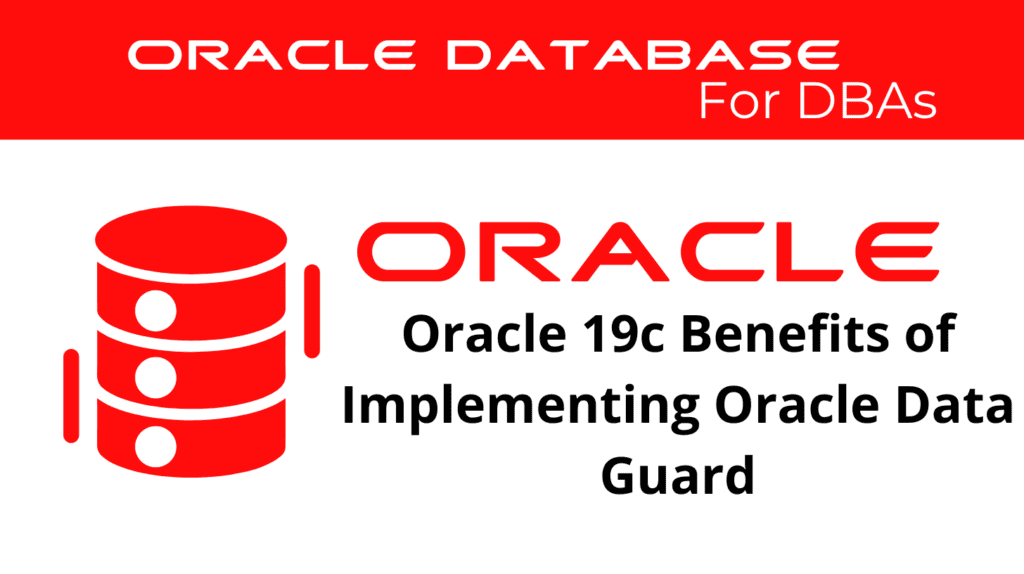
Oracle Data Guard 19c offers a robust solution for data protection and disaster recovery. This blog will explore the benefits of implementing Oracle Data Guard, focusing on how it enhances data availability, integrity, and overall database performance. Understanding these benefits can help organizations make informed decisions about their database management strategies.
Benefits of Data Guard
Implementing Oracle Data Guard 19c provides numerous advantages that significantly enhance database operations.
High Availability
Oracle Data Guard ensures that your database is continuously available, even in the event of a failure. This high availability is achieved through the automatic failover to standby databases, minimizing downtime and ensuring business continuity.
Data Protection
Data Guard provides real-time data protection by continuously synchronizing the primary database with one or more standby databases. This synchronization protects against data loss and corruption, ensuring that data is always accurate and up-to-date.
Disaster Recovery
With Data Guard, organizations can quickly recover from disasters by switching operations to a standby database. This disaster recovery capability ensures that critical business functions can continue with minimal interruption.
Performance Enhancement
Offloading read-only workloads to standby databases can significantly improve the performance of the primary database. This load balancing allows the primary database to handle more critical tasks, enhancing overall system performance.
Data Guard Benefits – Implementation
Setting up Oracle Data Guard involves several key steps to ensure it operates effectively.
Primary Database Configuration
The primary database must be configured to support Data Guard. This includes setting the appropriate parameters and ensuring the database is in archivelog mode.
ALTER DATABASE ARCHIVELOG;
Standby Database Setup
Create one or more standby databases using RMAN (Recovery Manager) or Data Guard Broker. These standby databases will receive and apply redo data from the primary database.
RMAN> DUPLICATE TARGET DATABASE FOR STANDBY FROM ACTIVE DATABASE;
Data Guard Broker Configuration
Using Data Guard Broker simplifies the management and monitoring of Data Guard configurations. The broker automates many tasks, making the setup and maintenance of Data Guard more efficient.
DGMGRL> CREATE CONFIGURATION 'dg_config' AS PRIMARY DATABASE IS 'primary_db' CONNECT IDENTIFIER IS 'primary';
See the full steps to create physical Standby.
📢 You might also like: Oracle 19c Data Guard Use with the Oracle Multitenant Databases (Category: DataGuard)
Advantages of Data Guard
The implementation of Oracle Data Guard offers several strategic advantages:
Cost Efficiency
By using standby databases for read-only operations, organizations can maximize their existing hardware investments, reducing the need for additional resources.
Regulatory Compliance
Data Guard helps organizations meet regulatory requirements for data protection and disaster recovery. By ensuring data is continuously synchronized and protected, businesses can maintain compliance with industry standards.
Simplified Management
Data Guard Broker simplifies the configuration and management of Data Guard environments, reducing administrative overhead and ensuring that Data Guard operates smoothly.
DG Implementation Best Practices
Data Guard has many benefits! To ensure a successful Data Guard implementation, follow these best practices:
Regular Backups
Perform regular backups of both primary and standby databases to ensure data integrity and facilitate recovery in case of data corruption.
Performance Monitoring
Use Oracle’s monitoring tools to track the performance of the primary and standby databases, ensuring they operate efficiently and addressing any issues promptly.
Regular Updates
Keep all databases updated with the latest patches and security updates to protect against vulnerabilities and ensure optimal performance.
Resource Allocation
Allocate sufficient resources to both primary and standby databases based on their workload and performance requirements to ensure smooth operations.
See more on Oracle’s website!
Conclusion
Understanding the benefits of implementing Oracle Data Guard 19c is crucial for organizations aiming to enhance their data protection and disaster recovery strategies. By leveraging Data Guard’s capabilities and following best practices, businesses can ensure high availability, data protection, and improved performance for their critical database environments.
Be Oracle DataGuard certified Professional, this world is full of opportunities for qualified DBAs!





